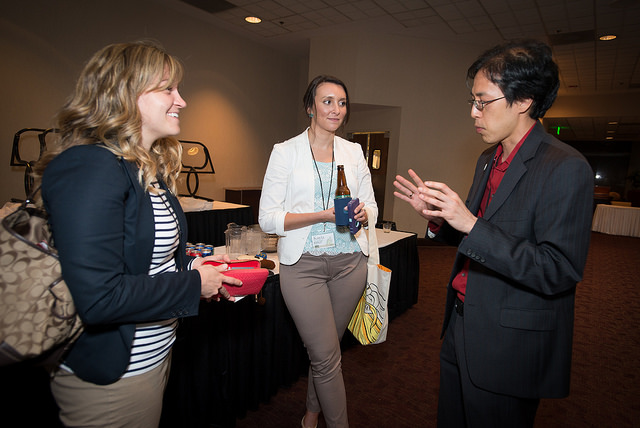Evolving “best practices” for classroom teaching emphasize engaging students, including cognitive breaks, and guiding interactive responses and peer discussion. Video can be a powerful driving for student learning. We (Brande and Arslan) have developed for our teaching, EZSnips, an online tool to be used with YouTube.
Although we developed EZsnips as a tool for use in Brande’s UAB Earth Science course, we believe the model we have developed and template for deployment is general to academic disciplines overall, and is just as suitable for a course in the humanities as it is in the sciences.
A teacher can, with EZsnips,
- “snip” a YouTube video without video editing software to create an arbitrary segment for later play
- input and store relevant metadata for later retrieval of the snip from a private, shared, or public video repository
- create a web link for each snip that will play the video segment from PowerPoint or any web compatible environment.
In this workshop, lead by Brande, we propose to hit all four marks – Talk, Make, Teach, Play.
Talk – Brande will demonstrate the power and functionality of EZsnips when used in combination with YouTube. Free trial accounts will be provided for immediate access by attendees.
Teach – Brande will also demonstrate how he uses Bloom’s Taxonomy to create a “video tutorial” to accompany video viewing, thus transforming a passive viewing experience into a guided, active one that initiates student written responses and peer group discussion.
Make/Play – By the end of the workshop, attendees will have
- searched and located a few videos on YouTube that are pedagogically relevant to their course(s)
- created a number of snips and associated metadata within EZsnips
- become familiar with the EZsnips user interface for viewing, filtering, and retrieving snips
- deployed EZsnips links from within PowerPoint and web browsers
- created at least one video tutorial based on Bloom’s Taxonomy.
Some of the detailed information about EZsnips to be presented during the workshop may be viewed from the Squarespace landing page here.
www.ezsnips.squarespace.com
EZsnips, the tool, and its public library of snips, may be viewed here.
www.ezsnips.com




